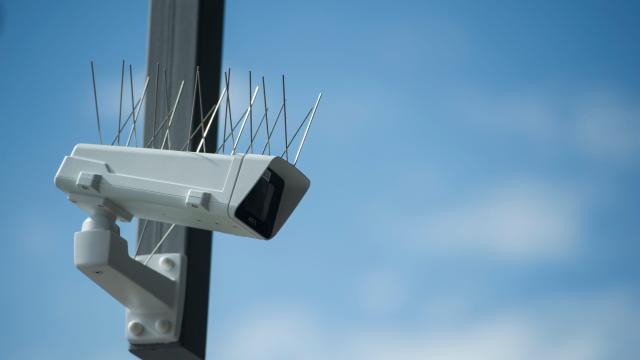One day after the biggest police body camera manufacturer in America banned the use of face recognition technology, Somerville, Massachusetts became the second city in the United States to ban the tech after San Francisco broke new ground with a ban last month, Vice reported.
Like the San Francisco ban, this Somerville law forbids city agencies, including police, from using face recognition technology.
The use of face recognition technology in the United States is coming under heavy criticism and increasing pressure. Oakland is also considering a ban on face recognition technology while California lawmakers are advancing a state-wide ban on face recognition in police body cams.
Civil liberties activists, technologists and politicians in cities around the US are examining the technology now. The federal government, however, has been largely quiet on the issue.
[referenced url=”https://gizmodo.com.au/2019/06/americas-biggest-police-body-cam-manufacturer-bans-face-recognition-surveillancefor-now/” thumb=”https://i.kinja-img.com/gawker-media/image/upload/t_ku-large/fyl4njqdj1hrfjtlf8sw.jpg” title=”America’s Biggest Police Body-Cam Manufacturer Bans Face Recognition Surveillance, For Now” excerpt=”Axon, America’s biggest police body camera manufacturer, is currently banning the use of face recognition technology in its products after its independent ethics board said Friday that the “technology is not yet reliable enough to justify its use on body-worn cameras” due to “unequal and unreliable performance across races, ethnicities, genders and other identity groups.””]
Face recognition technology, seen at its apex in authoritarian China, has spread steadily in the United States. Police body cameras, once embraced as a tool of accountability for American law enforcement, have become singularly powerful surveillance devices with the introduction of face recognition technology.
“One of the nation’s largest suppliers of police body cameras is now sounding the alarm and making the threat of face surveillance technology impossible to ignore,” Matt Cagle, Technology and Civil Liberties Attorney at the ACLU of Northern California, said.
“The California Legislature, and legislatures throughout the country, should heed this warning and act to keep police body cameras from being deployed against communities. The same goes for companies like Microsoft and Amazon, who also have an independent obligation to act, as Axon did today.
“Face surveillance technology is ripe for discrimination and abuse, and fundamentally incompatible with body cameras — regardless of its accuracy.”
The research emphasising the risks of face recognition surveillance includes an MIT study showing the technology fails on faces of women and people of colour.
A 2018 study by the ACLU found that Amazon Rekognition falsely matched 28 members of Congress to mugshot photos, a failure that impacted people of colour most of all.
A Georgetown Law study revealed that most American adults are in a police face recognition database even if they don’t know it.
When Axon, the United States’ leading police body camera producer, agreed to stop selling face recognition technology yesterday, the decision came at the urging of the company’s independent ethics board.
The director of the Policing Project at New York University School of Law and member of Axon’s ethics board Barry Friedman said that “at present, there are very real concerns about the accuracy of face recognition, and particularly about biases in the way it identifies people along racial, ethnic and gender lines.
“Until we address and mitigate these challenges, we cannot risk incorporating face recognition technology into policing. The ethics board applauds Axon for acting consistently with this.”
The company told Gizmodo they agree with the ethic’s board conclusion.
